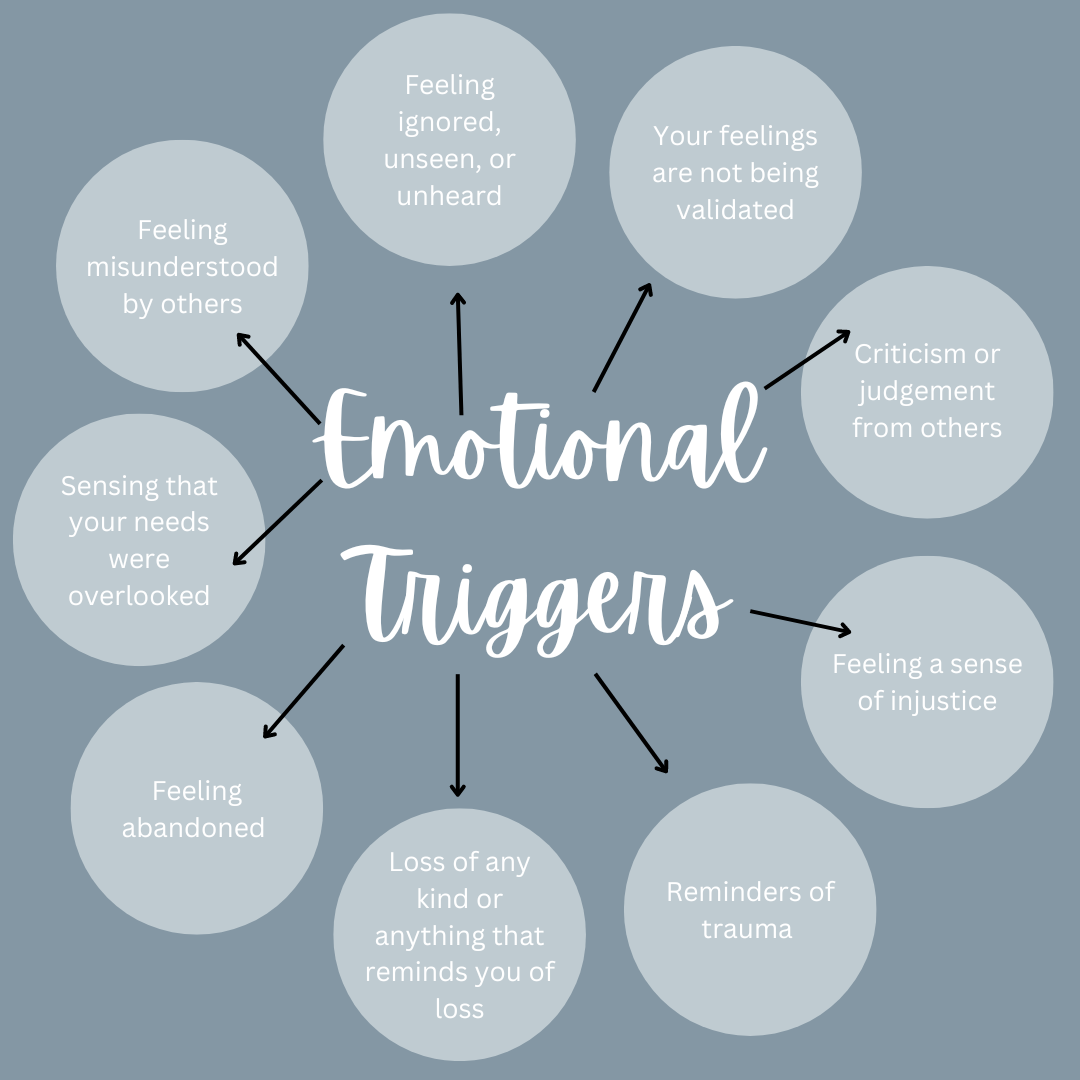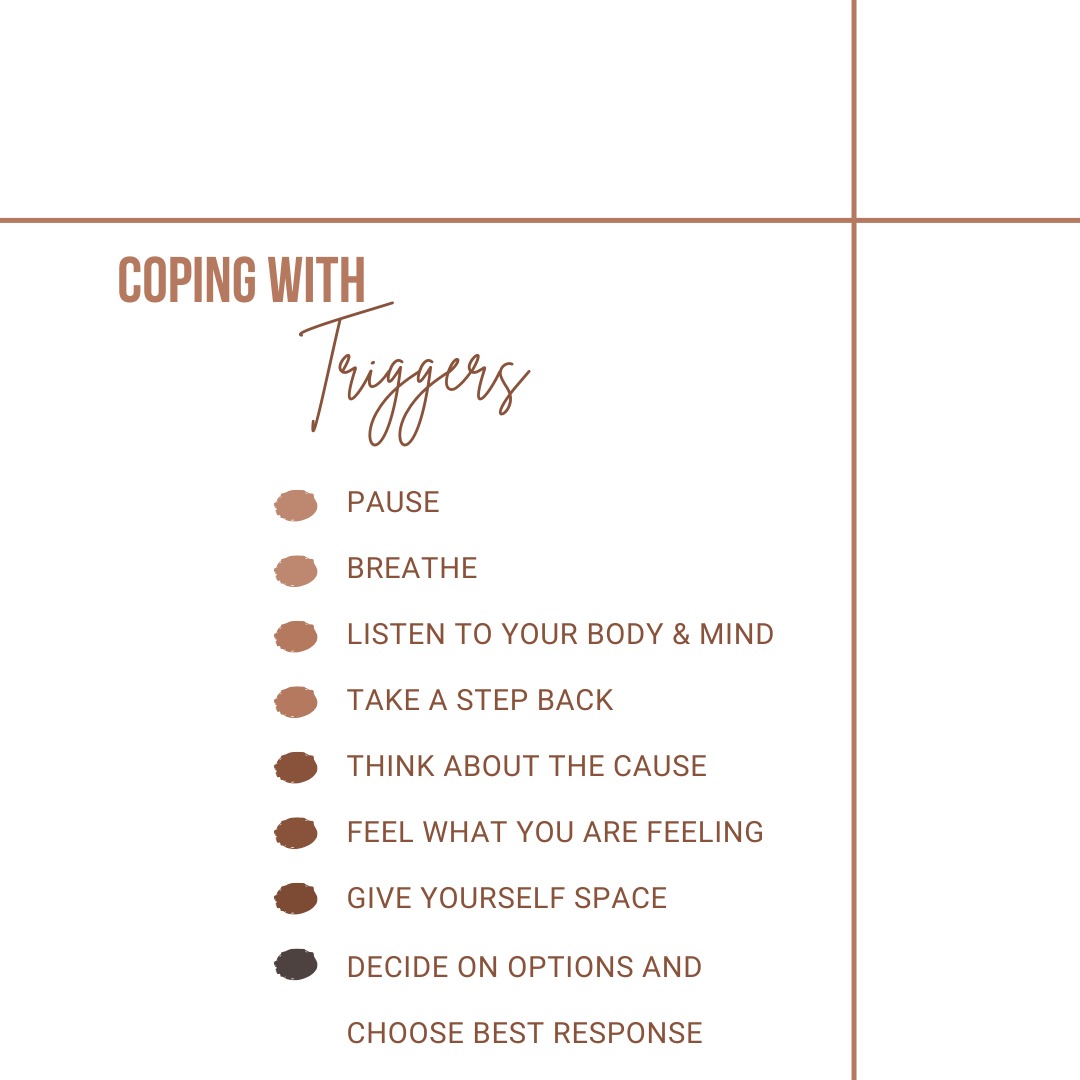Coping With Cravings
Strategies for Staying Strong
As a recovering addict, I know firsthand how difficult it can be to rebuild your entire life and implement the necessary changes to achieve and maintain sobriety. The process can be overwhelming.
Living a life of sobriety can very challenging at times. It’s important to not get ahead of yourself, and just take it as they say - “one day at a time.” It is hard work! Anyone who tells you getting and staying sober is a cake walk, is lying to you! Recovery is something you will need to dedicate yourself to and work at every single day.
No matter if you are new to the recovery game, or have been on your journey for some time now, a life of sobriety does NOT guarantee all of life’s problems will go out the door, or that there won’t be moments where vulnerability and weakness that sneak up on you.
Let Me Introduce Myself
My name is Heidi. I am a recovering addict and a mother of two. I spent countless years on a downhill spiral with meth, heroin, and alcohol. I have since dedicated myself in these last few years to not only rebuilding a life in recovery that I am proud of, but also setting out to help others with the desire to do the very same.
Through countless years of treatment, inpatient services, outpatient services, behavioral management programs, continued education, and peer support, I have cultivated a passion and desire for sharing what I have learned along my journey with all of you!
I hope that by sharing some of the strategies that have worked for me, I can empower others who are on a similar path to achieve lasting sobriety. Remember, you are not alone, and with the right support and determination, you can overcome these challenges!
When embarking on the journey of sobriety, it's crucial to have a clear understanding of your "why" – the driving force that motivates you to live a better life free from addiction. Your "why" serves as a powerful anchor, helping you stay focused and committed, especially during moments of temptation or struggle.
Establishing Your "Why"
Write it Down: Take the time to reflect and articulate your reasons for wanting to get sober. Write them down in a journal or on a piece of paper. The act of putting your thoughts into words can help solidify your intentions and make them more tangible.
Explore Your Values: Consider the values that are most important to you, such as family, health, personal growth, or professional success. Reflect on how your addiction has impacted these areas of your life and how sobriety can help you realign with your core values.
Envision Your Future: Imagine the life you want to live – one filled with clarity, purpose, and fulfillment. Visualize the positive changes that sobriety can bring, such as improved relationships, better physical and mental health, and a renewed sense of self-worth.
Seek Inspiration: Look for stories of individuals who have overcome addiction and achieved sobriety. Their journeys can serve as a source of inspiration and motivation, reminding you that lasting change is possible.
Photo By Author: Author and her daughter
Personally, I knew that I didn’t want to die. I knew that I wanted to have a family someday. I knew I wanted my two girls to have their mom, and not have to ever go through life owning the choices I’ve made. I did not want them to have a void space in all of their memories or milestones because I was unable to be physically or mentally present. I never wanted them to carry shame or be consumed in the lifestyle I had become consumed in.
I wanted things in life. I wanted to have a job, have money in a bank account, and go to a store and actually be able to afford things. I wanted to be able to travel or go on vacation with my family. I wanted to be included in holidays and special occasions. I wanted to be something other than just another statistic.
The Benefits of Knowing Your "Why"
Having a clear and compelling "why" can provide numerous benefits as you navigate the path to sobriety:
Refocusing During Temptation: When faced with temptation or cravings, your "why" can act as a powerful reminder of the reasons you chose to get sober. It can help you refocus your energy and stay committed to your goals.
Motivation and Perseverance: Your "why" can serve as a constant source of motivation, pushing you forward even when the journey becomes challenging. It can help you persevere through difficult times and maintain your commitment to sobriety.
Personal Growth and Self-Discovery: The process of identifying your "why" can lead to profound self-discovery and personal growth. It can help you gain a deeper understanding of yourself, your values, and your aspirations, ultimately contributing to a more fulfilling and purposeful life.
Accountability and Support: Sharing your "why" with loved ones or a support group can foster accountability and provide a network of encouragement and understanding. Others can help remind you of your reasons when you feel discouraged or tempted to relapse.
Remember, your "why" is a deeply personal and powerful force that can guide you through the challenges of sobriety. Embrace it, nurture it, and let it be your constant on this transformative journey towards a better life!
Understand Your Triggers
The first step in managing cravings is to identify what triggers them. Are there certain times of day, emotions, or situations that make you more likely to experience a strong urge for something unhealthy? By understanding your personal triggers, you can develop a plan to address them proactively.
Identifying your triggers is an essential first step in managing them during addiction recovery. The most common types of triggers are:
Internal triggers - Negative emotions like anger, guilt, sadness, or boredom that can lead to cravings.
External triggers - People, places, things, or activities associated with past substance use.
To identify your personal triggers, I recommend:
Keep a journal to track when you experience cravings or the urge to use. Note the situation, your emotions, and any external factors present.
Reflect on past relapses and the events or feelings that led up to them. This can reveal patterns in your triggers.
Work with a therapist to explore the root causes and thought patterns behind your triggers.
Be aware of the "HALT" states - Hungry, Angry, Lonely, Tired - as these can weaken your ability to cope with triggers.
Identifying your unique triggers is an important first step. With self-awareness and the right coping strategies, you can learn to manage triggers and maintain your recovery.
Practice Mindfulness
When a craving hits, take a moment to pause and tune into your body and mind. Notice the physical sensations associated with the craving, such as an empty feeling in your stomach or a tightness in your chest. Acknowledge the craving without judgment, and then redirect your attention to your breath or a calming activity.
By cultivating present-moment awareness and acceptance, mindfulness empowers individuals to navigate cravings and high-risk situations with greater resilience.
To implement mindfulness in recovery, feel to try some of the following techniques:
Mindful breathing: Focus on the sensations of inhalation and exhalation, anchoring oneself in the present moment.
Body scan meditation: Systematically bring attention to different parts of the body, releasing physical tension and acknowledging emotional states.
Observation of thoughts: Notice negative thoughts as they arise, without getting entangled in them. This reduces their power to trigger substance use.
Mindful listening: Engage in active, present-moment listening to improve communication and relationships strained by addiction.
Gratitude practice: Take time to appreciate the positive aspects of one's life, cultivating a sense of abundance and well-being.
By incorporating mindfulness techniques into your daily life, you can better develop the self-awareness, emotional regulation, and resilience needed to navigate triggers and maintain long-term sobriety.
Find Healthy Alternatives
During the course of our addictions, we often develop strong connections and attachments to people, places, and activities that enable or reinforce our addictive behaviors.
These connections can be deeply ingrained and can serve as powerful triggers, making it challenging to maintain sobriety. Replacing these unhealthy connections with healthier alternatives is a vital step in the recovery process.
Acknowledging the need for change and taking the necessary steps to implement it can be incredibly challenging and uncomfortable. Breaking long-standing habits and severing ties with people, places, and things that have been a part of your life for an extended period can be emotionally and psychologically crumbling.
The process may involve feelings of loss, grief, and uncertainty, as the you start to navigate the unfamiliar territory of a life without your addictive behaviors. Hang tight. It will get better, and much easier in time. Trust me!
Experiment to find what works best for you and make sure these alternatives are readily available.
Despite the difficulties, it is crucial for those in recovery to persevere and make the necessary changes. Maintaining sobriety and achieving long-term recovery often hinges on the ability to replace unhealthy connections with positive, supportive alternatives.
These healthy alternatives can provide a sense of structure, routine, and fulfillment, which can be instrumental in preventing relapse and promoting long-term sobriety.
Delay, Distract, and Decide
When a craving arises, try the "3 D's" approach:
Delay acting on the craving for at least 15-20 minutes. This allows the intensity to subside.
Distract yourself with a different activity, such as calling a friend, reading a book, or engaging in a hobby.
Decide whether to indulge the craving or continue with your healthy plan. Revisit your “Why?” Encourage yourself with positive affirmations. “Play The Tape”
… all the way through.
“Playing the tape” is a crucial concept in addiction recovery. It refers to the practice of visualizing the complete consequences of giving in to an addictive urge, rather than just focusing on the immediate gratification.
This technique will help you recognize that the short-term relief provided by the addictive behavior is often followed by negative outcomes, such as guilt, shame, and further damage to one's physical and mental health.
By playing the tape all the way through, you will be able to make more informed decisions and resist the temptation to relapse, ultimately strengthening your long-term recovery efforts.
When I have been in a position of contemplating picking back up, I made it a habit to start asking myself, “Is this worth potentially going to jail for?” “Is this worth not being able to see my kids over?” “Is this worth ruining the trust I’m trying to build with my family.” “Is this worth loosing my job over?” In every situation and under every circumstance it becomes rather easy to talk yourself out of following through with a self-destructive choice.
Celebrate Small Victories
Recognize and celebrate your successes, no matter how small. Each time you resist a craving or make a healthy choice, give yourself a pat on the back. This positive reinforcement can help you stay motivated and build momentum towards your goals.
Celebrating your wins, whether it's reaching a milestone, overcoming a challenge, or simply making it through a difficult day, provides a much-needed boost of self-confidence and self-esteem. This positive reinforcement can help you stay focused and determined, even when the road ahead seems daunting. Recognizing your own hard work and resilience is a powerful way to remind yourself that you have the strength to overcome obstacles and continue on your path to recovery.
It's important to remember that a relapse or a setback does not define you or your recovery journey. Falling down is a natural part of the process, and what matters most is that you pick yourself back up and keep moving forward.
Celebrate the fact that you're willing to learn from your mistakes and continue to grow and evolve. Each step, whether forward or backward, is an opportunity to gain valuable insights and become an even stronger, more resilient version of yourself.
You’ve got this shit!! Keep going!!
If you or anyone you know is struggling, please reach out!
There are professional helplines available that can provide support and resources. Remember, you don't have to face your challenges alone.
I'm also here if you ever need a kind word or someone to talk to. Feel free to contact me directly. I'm happy to listen and offer whatever support I can.
No one should have to suffer in silence. Help and compassion are out there. Reach out, and don't lose hope. Better days are ahead!
Additional Tools & Helpful Resources:
Embark on a journey of self-discovery and personal transformation with our comprehensive personal wellness & self-help digital library. Unlock your true potential, cultivate a healthier mindset, and achieve the life you've always envisioned. Start your journey today and unlock a world of possibilities!
Complement your reading with our interactive workbooks, which provide practical, step-by-step exercises to help you apply the concepts you've learned. These engaging resources are designed to facilitate self-reflection, personal growth, and the development of sustainable habits.














